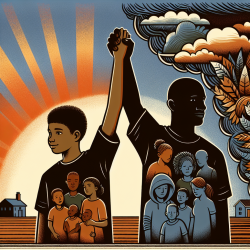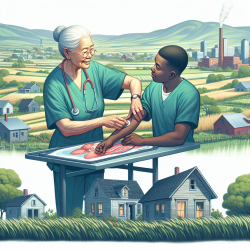Understanding the Restorative Integral Support (RIS) Model
The Restorative Integral Support (RIS) Model is a groundbreaking framework designed to address the complex challenges faced by boys and men of color (BMoC) due to systemic racism and trauma. This model integrates trauma-informed approaches to foster equity and resilience within communities. By focusing on the unique experiences and adversities of BMoC, the RIS model offers a multidimensional approach to healing and recovery.
Key Components of the RIS Model
- Trauma-Informed Interventions: The RIS model emphasizes the importance of culturally relevant, trauma-informed practices that are sensitive to the unique experiences of BMoC.
- Community-Based Support: The model encourages the development of community networks and relationships that provide a supportive environment for healing and resilience.
- Policy and Systemic Change: The RIS model advocates for changes in policies and systems to address the root causes of trauma and adversity, promoting equity and justice.
Implementing the RIS Model
Practitioners can improve their skills by integrating the RIS model into their work with BMoC. Here are some steps to consider:
- Engage with community leaders and members to understand the specific needs and challenges faced by BMoC.
- Incorporate culturally relevant trauma-informed practices into your interventions.
- Advocate for policy changes that address systemic inequities and promote equity and justice.
- Foster positive relationships and networks within the community to support healing and resilience.
Encouraging Further Research
The RIS model is a flexible framework that can be adapted to different community contexts. Practitioners are encouraged to conduct further research to explore how the model can be effectively implemented in their specific settings. By collaborating with community members and other stakeholders, practitioners can develop innovative approaches to support BMoC in overcoming trauma and adversity.
To read the original research paper, please follow this link: The Restorative Integral Support (RIS) Model: Community-Based Integration of Trauma-Informed Approaches to Advance Equity and Resilience for Boys and Men of Color.










